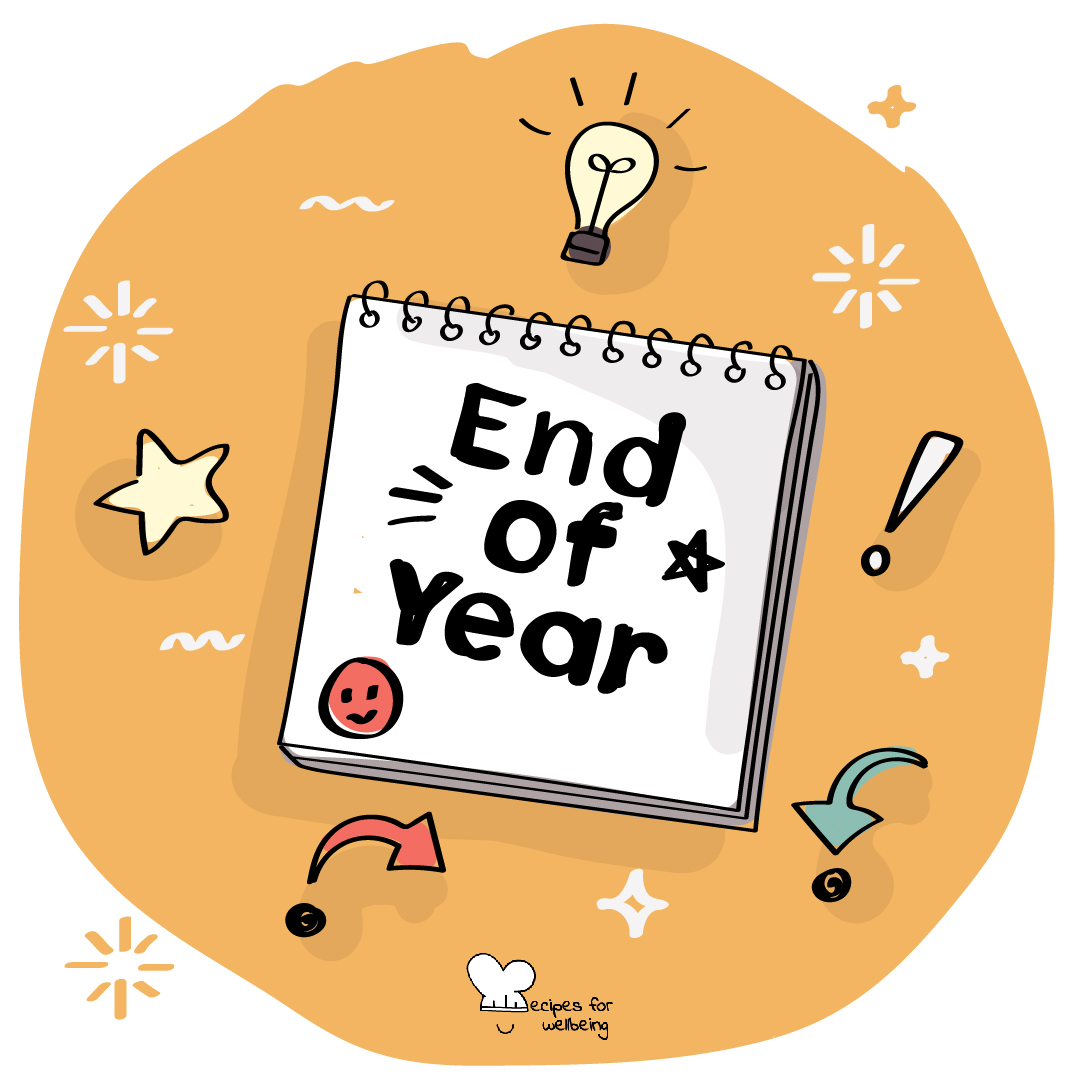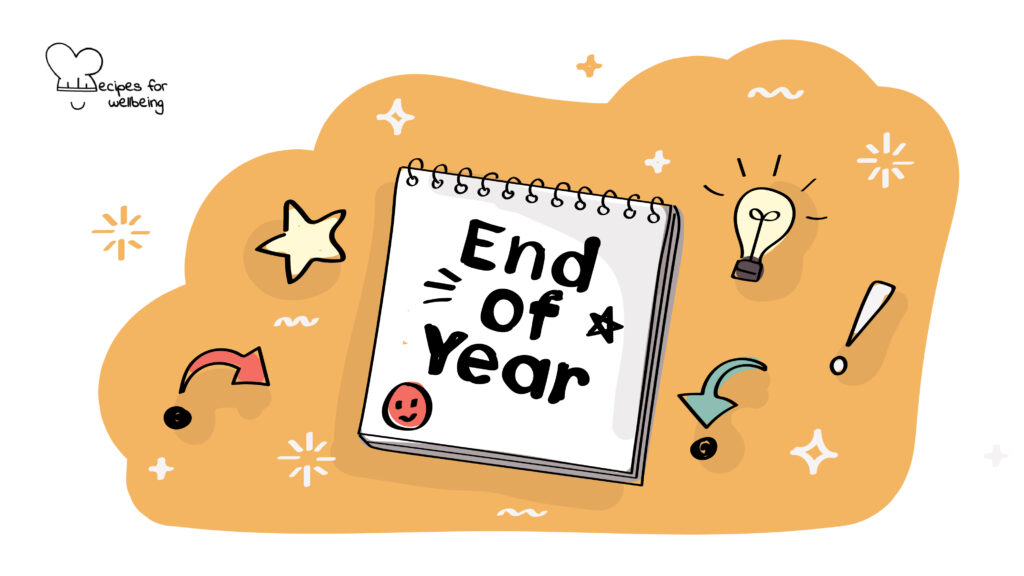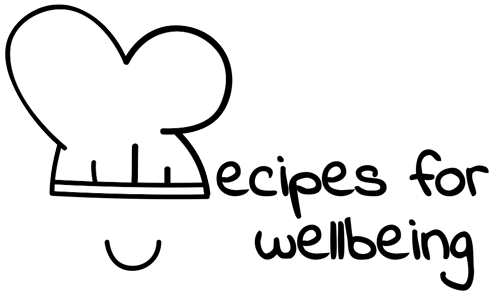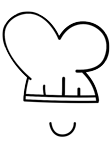
Time to wrap up 2020 (finally!)

Time to wrap up 2020 (finally!)
“Greta, let’s rewind a little and go back to December 2019 when you were bringing the year to a close and preparing for the beginning of a new year and a new decade… Did you expect 2020 to turn out the way it did?”
If someone asked me this question, my answer would be “Clearly not!” and I am sure many of you would answer the same. Needless to say, 2020 has been quite a turbulent year, with the pandemic sweeping away our way of life, forcing our society to stop and rethink the way it serves people. Now, as 2020 comes to a close, I would like to invite you to take a moment to look back at your experiences and reflect on how you have been serving your wellbeing in the past 12 months.
First and foremost, let me take you back to the very first blog post I wrote this year, “Wellbeing tools for a new decade”, where I invited you to set an intention for the year. If you don’t remember, “setting an intention is a way to prepare your mind and heart for how you wish to show up in the world and face whatever life has to offer. It is different from setting a resolution, which is another word for setting an action-oriented goal that feels like another chore in our to-do list to reach the unreachable perfection. Instead, an intention is about adjusting your inner compass to set the right course as you sail through the uncertain waters of life.” When I look back at those words, they seem quite revelatory. What was your intention for 2020? Were you able to honour it or did you have to change it on the fly once the pandemic broke out?
When I reflect on my intention for 2020, the word “simplifying” captures it and in a way, COVID-19 has forced me to simplify my life, a lot. For once, it has prevented me from travelling – in 2019 I travelled for 6 months in total, which was great, but also exhausting for me and for the planet. As a result, my carbon footprint this year is one tenth of last year, and my body is in better shape thanks to a more regular routine. Yoga practices like this gentle morning flow I introduced in the blog post “Moving the body to calm the mind” saved me from insanity during the first lockdown, when I couldn’t exercise outside. And once I was allowed to go outside, practices such as mindful walking, solo day, and dialogues with Nature nourished my soul and rekindled my connection with Nature. How about you? How did you look after your physical wellbeing throughout the year? And how did your relationship with Nature change, if it at all?
Second, I would like to draw your attention to how you have been connecting with people this year. For me, the pandemic has radically affected the way I connect and communicate with people. Before COVID-19, I would travel around the world facilitating transformative experiences for young changemakers in beautiful places immersed in Nature and with little or no access to digital technologies. All of a sudden, digital technologies became the only means to continue doing my work and connecting with others. The shift was abrupt but with dedication and creativity, I was able to re-create powerful online spaces for young changemakers. Realising that online spaces can also be safe, vulnerable, authentic, inspiring, challenging, fun, and creative was an important learning for me this year. But at the same time, I have found that many changemakers really struggled (and are still struggling) with their mental and emotional wellbeing this year, partly caused by the social isolation imposed by the various lockdown measures. If you are struggling too, or you loved ones or team members are struggling, I encourage you to go back to a few of the wellbeing practices I shared this year, from the simple EQ check-in to a more advanced practice to deal with others’ suffering, from fostering unlimited empathy to questions to find your inner refuge, and from mindful ways to manage stress to giving voice to your unexpressed gratitude.
Third, but still related to other people, shift your attention to how relationships have been managed with your team members and within your organisation in the past year. With many people working from home, entire organisations realised how ill-equipped they were to support their employees in this forced transition. Luckily, when I am not travelling, I work for home, so I didn’t experience any difficulties setting up an adequate workspace at home, but surely I wasn’t ready for this to be my office for so long. I haven’t seen any of my colleagues for a year now and it’ll be another while before I may be able to sit with them in the same room. That’s why I have been sharing several practices to foster team wellbeing, from questions to foster collaboration to a full group coaching process to get your team unstuck and from the life map to get to know your team members to insights to help you rethink your approach to rejection and to collaborative painting to spark connection through art.
Fourth, you might have experienced that this year’s events have shaken you up to the core, maybe even challenging your own sense of purpose and meaning in life. When people around us are getting ill and dying, or losing their jobs and sources of income… when everything seems to go South, what’s the point in anything we do? I definitely pondered on these questions and I found it very helpful to ground myself in my purpose and source of meaning in life, receiving incredible amounts of hope, courage, and resilience. If you need a bit more grounding, then go back to the following blog posts: “Aligning inner and outer purpose” and “Transcending beyond immediate concerns”. And if thinking about your purpose feels a bit too much right now, why not start with more accessible practices such as the gratitude journal and the gratitude bingo, or three good things and the gratitude alarm?
No matter how “bad” this year might have been for you, there are always things you can be grateful for. And I am not referring only to positive experiences. In fact, you can also be grateful for an unpleasant or painful experience, because it might have taught you something you didn’t know or had forgotten, or might have pushed you to let go of a behaviour that wasn’t serving your wellbeing and cultivate a new trait that is more supportive and nourishing. I know you might be eager to close this year and forget about it altogether, but I urge you to give it a proper closure so that you can fully and readily embrace 2021. For this reason, I am sharing with you one last wellbeing practice in 2020, which is a simple but powerful end-of-year reflection process that you can go through alone or with your team.
“For last year’s words belong to last year’s language and next year’s words await another voice. And to make an end is to make a beginning.” ―T. S. Eliot
You can access the full guidelines here. This blog post was originally written by Greta Rossi for tbd* – click here to view the original post.

